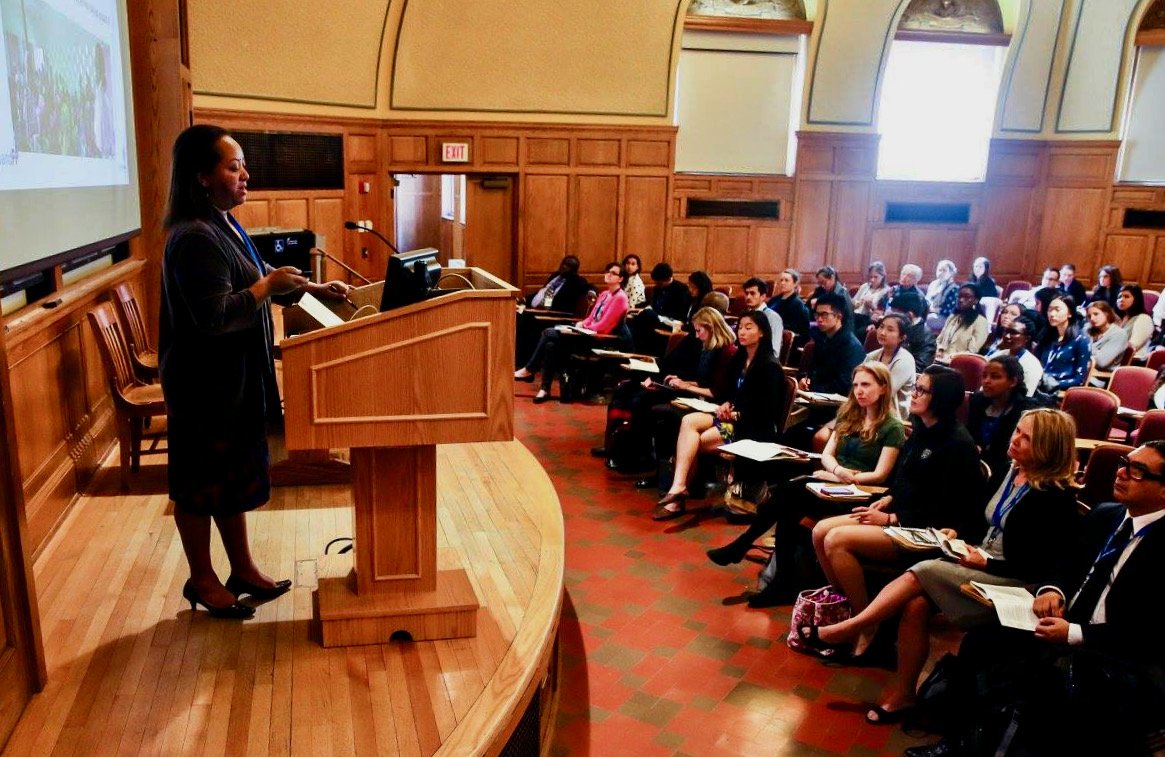
HEALTH EDUCATION STRATEGIES CERTIFICATE
Module 4: Engaging Children as Health Messengers
Peer education has been successfully utilized in health projects that seek to reduce the incidence of smoking among young people, prevent substance misuse, and promote sexual health and HIV prevention. Several recent studies confirm that school-based health education interventions engage school children to reach other community children and adults with health messages and hygiene practices learned at school. In a study by Ayi et al., school-based malaria education intervention was found to engage school children as health messengers, who influenced community adults to improve their knowledge about the cause of malaria, prevention, and bed net practices. The improved knowledge and practices contributed to a decreased malaria prevalence observed in the school children.(1) In Laos, Nonaka et al. demonstrated that school children reached out to influence women who were not caregivers of target school children to improve their behavior in relation to malaria control. (2)
A study in Tanzania by Mwanga et al. showed that school children act as health change agents. Findings demonstrated that study participants favored an approach where school children played an active role as health change agents in a combined school and community health education project. Children assume the role of messengers for educational messages and practices through an action-oriented and participatory teaching and learning approach aimed at ensuring the development of their genuine participation and their ownership of the educational process. Students expressed a high commitment to school-based health education and willingness to work as communicators. Pupils preferred "learning by doing" as opposed to theoretical teaching alone. The following quotation from the study illustrates this:
“I can instruct my family and the entire community on how to adhere to hygiene practices such as taking bath, washing clothes and keeping the compound tidy.” (3)
Teachers emphasized that once the students have basic knowledge about how diseases are caused, transmitted and prevented, they are then able to take initiatives to prevent ill health. A participant in the study also noted that children could educate fellow children and adults on health education:
“Yes, it is possible because children are among the community. It is easy for a child to meet others in play or another activity and advise/educate fellow children on various issues pertaining to health. If this education is also brought into the family, it would be very useful and a child can do the job of a teacher (a family teacher) on what is good or bad for health. For instance, if a child finds his mother preparing food without washing hands, or coming from latrine and does not wash hands, he can tell her to wash hands. This would be a very useful advice.” (4)
Often, traditional views equate status and old age with wisdom, which can limit the capacity for children to act as messengers. However, the study by Mwanga et al. revealed that adults respect children for their skills and knowledge acquired at school. They regarded children as quick learners and as resourceful, enlightened people. Some parents also saw children as role models and emphasized learning by doing. Overall, children, parents, and teachers have a positive attitude towards successful health message dissemination by utilizing children as health messengers.(5)
Footnotes
(1) Ayi I., Nonaka D., Adjovu J.K., Hanafusa S., Jimba M., Bosompem K., Mizoue T., Takeuchi T., Boakye D.A., and Kobayashi J. School-based participatory health education for malaria control in Ghana: engaging children as health messengers. Malaria J. (18 April 2010) 9:98.
(2) Ibid.
(3) Mwanga, J.R.; Jensen, B.B.; Magnussen, P.; Aagaard-Hansen,J. School Children as health change agents in Magu, Tanzania: a feasibility study. Health Promotion International. (2008) 23 (1): 16-23.
(4) Ibid.
(5) Ibid.
